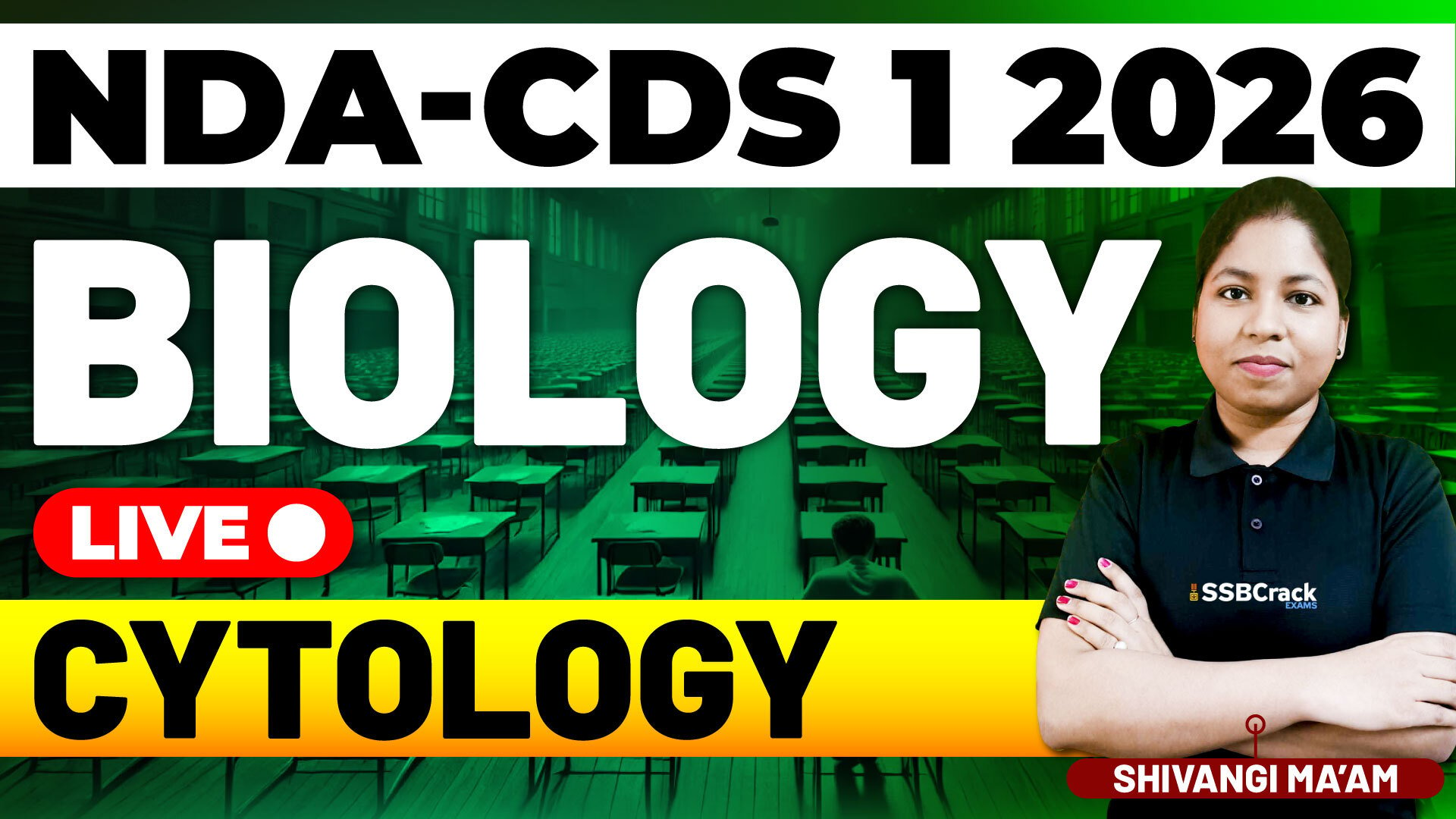The NDA (National Defence Academy) and CDS (Combined Defence Services) Examinations conducted by the Union Public Service Commission (UPSC) test candidates’ understanding of basic science concepts as part of the General Science section.
Biology forms an important part of this section, focusing on the fundamental principles of life, including cytology (study of cells) and cell division — both essential to understanding how living organisms grow, repair, and reproduce.
Topic: Cytology and Cell Division
1. Introduction
Cytology, the study of cells, is a cornerstone of biology. Every living organism is made up of cells — the structural and functional units of life. Understanding cell structure and how cells divide helps explain processes like growth, heredity, and disease.
This topic lays the foundation for more advanced concepts in genetics, physiology, and biochemistry.
2. Subtopics
A. The Cell — Basic Unit of Life
- Discovery of the cell (Robert Hooke, 1665)
- Cell theory (Schleiden, Schwann, and Virchow)
- Prokaryotic and eukaryotic cells — differences and examples
B. Structure of the Cell
- Cell membrane: structure and functions (selective permeability)
- Cytoplasm: site of metabolic activities
- Cell organelles and their functions:
- Nucleus — control center, chromatin, nucleolus
- Mitochondria — powerhouse of the cell
- Endoplasmic reticulum — rough and smooth types
- Golgi apparatus — packaging and secretion
- Lysosomes — digestive enzymes
- Ribosomes — protein synthesis
- Plastids (in plant cells) — chloroplasts and photosynthesis
- Vacuoles and their role
C. Cell Division
- Importance: growth, repair, reproduction
- Types of cell division:
- Mitosis — equational division for growth and repair
- Stages: Prophase, Metaphase, Anaphase, Telophase, Cytokinesis
- Meiosis — reductional division for gamete formation
- Meiosis I and Meiosis II
- Genetic variation through crossing over
- Mitosis — equational division for growth and repair
D. Cell Cycle
- Phases: Interphase (G1, S, G2) and Mitotic phase
- Control mechanisms and checkpoints
E. Significance of Cell Division
- Mitosis: tissue growth and maintenance
- Meiosis: genetic diversity and evolution
- Errors in cell division: cancer and genetic disorders
3. Conclusion
Cytology and cell division form the foundation of life sciences, explaining how organisms grow, reproduce, and maintain continuity of life. For NDA/CDS aspirants, understanding these basic processes strengthens not only biology knowledge but also logical and analytical thinking, both vital for defence careers where observation and precision matter.
Tip for NDA/CDS 1 2026 Preparation
- Revise NCERT Class 9 & 10 Biology chapters on “The Fundamental Unit of Life” and “Cell Division.”
- Practice previous years’ NDA/CDS Biology questions — especially diagrams and terminology.
- Focus on conceptual clarity rather than memorization.







